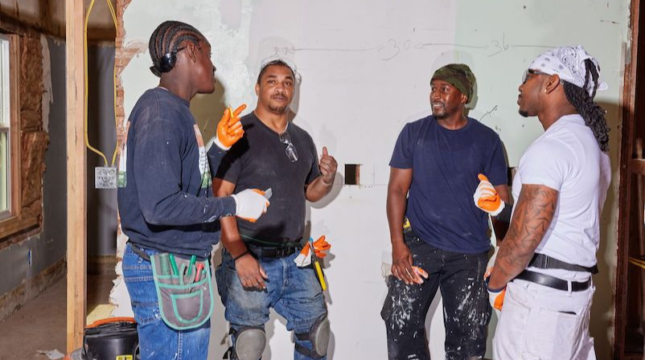Even if workers’ comp is not required for your construction business, the protection of workers’ compensation insurance could be a huge asset.
If an injury occurs on the job, the business can be held responsible. Workers’ compensation insurance can help cover injury-related costs to help protect the financial stability of your business.
Jump ahead to learn:
- Why do construction businesses need Workers’ Compensation insurance?
- What are the most common business risks for construction workers?
- How much does Workers’ Comp cost for a construction company?
- What are Workers’ Compensation construction classification codes?
- How NEXT can help protect your construction business
Why do construction businesses need Workers’ Compensation insurance?
Workers’ comp coverage can help cover the costs of:
- Medical expenses
- Lost wages
- Job retraining
- Permanent disability benefits
- Death benefits
- Employers liability in the event of a lawsuit
Workers’ compensation insurance is a type of business insurance. It can help protect business owners of any size from financial losses after a work-related injury or illness.
Workers’ Comp may be required by state law
In most states, workers’ compensation insurance is required by law if you have employees. But even if you’re a sole proprietor (meaning a business of one) a workers’ comp policy could be required.
Additionally, people working in construction often need to show a certificate of insurance (COI) to get a professional license as a plumber, electrician, HVAC technician or general contractor. You might need workers’ comp to compete for jobs or comply with state laws. Even if it’s not a mandate, many private and commercial clients won’t hire someone in the construction trade if they don’t carry the protection of workers’ comp insurance.
Workers’ Comp can help cover the cost of work-related injuries
Construction jobs are very physical, meaning workplace injuries such as slip-and-fall incidents, repetitive stress trauma, spinal injuries and more can be common.
If you or your employee gets hurt, medical bills could add up quickly.
Your income and your employee’s income could be protected under Workers’ Comp
If someone covered by the insurance needs time away from work to heal after a covered injury or illness, a percentage of their income could continue until they’re able to get back to work.
What are the most common business risks for construction workers?
These are some of the common risks that GCs, plumbers, electricians or anyone in the trades could be exposed to at work:
Accidental injuries like slips and falls
Your employee trips at a construction site and hits their head, requiring a visit to the emergency room.** Workers’ compensation insurance for construction businesses could help cover their medical bills.
Lost wages after an injury or accident
A worker injures their back lifting a heavy load. Workers’ comp insurance can help cover lost wages while they recover.
Work-related permanent injury or death
In the event of a serious or life-threatening accident, your workers’ comp insurance could help cover some of the associated costs.
Depending on the extent of the injury, this may include long-term disability benefits, burial expenses or survivor benefits for an employee’s family.
An employer liability lawsuit
An injured employee could file a lawsuit against your business claiming that your negligence put them at risk. If this happens, workers’ comp insurance could help with the legal costs to defend yourself.
If you run your own construction business, you can add business owner’s coverage to ensure that you’re covered if you get injured at work.
How much does Workers’ Comp cost for a construction company?
The cost of workers’ compensation insurance (also called the premium) for construction businesses can depend on a number of factors, including:
- How many employees you have
- Your payroll expenses
- Your claims history
- How long you’ve been in business
- The state where you work
NEXT offers tailored, affordable workers’ comp insurance policies that provide the right coverage for your business.
What are Workers’ Compensation construction classification codes?
Workers’ compensation class codes are three- or four-digit codes used by the insurance industry to estimate how much risk is involved and the premiums associated with different types of work.
Jobs that are higher risk, such as electrical work or concrete construction, usually come with higher premiums, whereas a desk job in the industry is less likely to lead to injury and usually has a lower monthly rate.
Workers’ comp classification codes are set mostly by the National Council on Compensation Insurance (NCCI), but some states use their own codes. It can be useful to learn the workers’ compensation class code for the type of construction work you do to get a better understanding of your risk and insurance premium.












